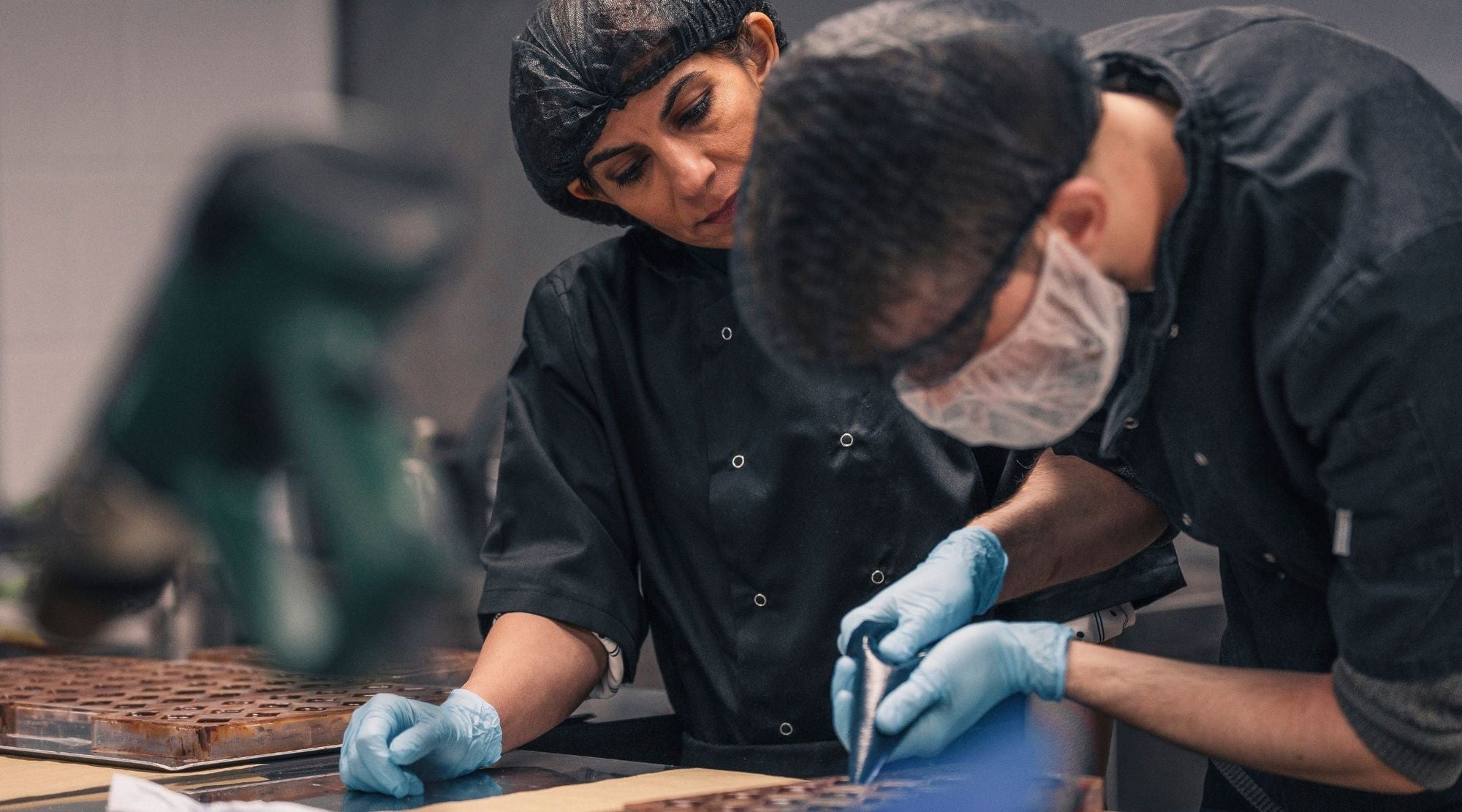

· By Mona Shah
Social Enterprise or Charity? Know the Difference
People often ask whether Harry Specters is a charity. We get the comparison - it often feels like we’re doing charitable work. But while we do have a powerful social mission, we’re not a charity. We're a social enterprise. Let’s explore what that means, and how social enterprises and charities differ in how they operate and fund their work.
What Is a Social Enterprise?
A social enterprise is a business with a mission. Like any other for-profit company, we make and sell products—in our case, award-winning artisan chocolates. But rather than distributing our profits to shareholders, we reinvest the majority back into our purpose: creating paid work opportunities and training for autistic individuals and offering free work experience placements for neurodivergent students.
Social enterprises aim to be sustainable through trading. We earn money the same way any business does, through sales, and use that income to fund real-world change.
What Is a Charity?
Charities are organisations that exist solely for public good. They usually provide services, support, or resources to people in need, and they’re funded mostly by donations, grants, and fundraising efforts rather than sales.
For example, our partner bibic is a national charity that provides assessments and holistic, bespoke developmental therapy to children and young people, and adults with disabilities. Including those with neurological conditions such as autism. Their work is family-focused and entirely bespoke, supporting everything from communication and motor skills to emotional regulation. bibic’s services are often life-changing for many individuals and their families, and they rely on the generosity of donors to keep going.

Key Differences: Social Enterprise vs Charity
|
Feature |
Social Enterprise |
Charity |
|
Primary Income |
Sales of goods or services |
Donations, grants, and fundraising |
|
Profit Use |
Reinvested into mission and growth |
Reinvested into charitable programmes and support |
|
Legal Structure |
Business or community interest company (CIC) |
Registered charity with strict regulatory oversight |
|
Focus |
Self-sustaining, earned income model |
Donor-supported service delivery |
Why Harry Specters Chose the Social Enterprise Model
We believe in empowering people through employment. We use ethically sourced, luxury chocolate as a vehicle for lasting change. Every purchase supports autistic people in a real, direct way, from training and development to paid work that builds confidence and skills.
We’ve helped over 360 autistic people so far, and we’ve watched many of them grow in skill and confidence, move on to jobs with companies like Sainsbury’s and Amazon, pass their driving tests, and reach personal milestones they once thought out of reach.
Our goal isn’t just to make great chocolate (although we do that too!). It’s to provide a pathway to opportunity, inclusion, and independence. That’s the power of a social enterprise.

Charities Play a Vital Role
We’re proud to partner with bibic, who offer support we don’t. While we focus on employment and skills, bibic works holistically with many individuals, offering therapy and long-term support to disabled people, including autistic individuals and those with neurological conditions. Their work focuses on providing early and holistic support, helping people to build essential tools and confidence as they grow.
Social enterprises and charities aren’t in competition; they complement each other beautifully. Together, we create a stronger, more inclusive world.
The Big Picture: Making a Difference, Together
At Harry Specters, our model allows us to be self-sufficient, innovative, and proactive. Your support (whether it’s buying a bar for yourself or a gift box for someone else) helps us continue to provide meaningful employment, skill-building, and hope for autistic individuals.
Charities like bibic play a vital role by harnessing the generosity of donors to provide therapy and personalised support for children and families navigating disability and neurodivergence. By supporting bibic, you’re helping to ensure more young people get the tailored help they need to thrive
Both play a crucial part in creating a more inclusive society. One gives immediate support and care. The other builds long-term opportunity. And together, they create lasting change.
So next time someone asks what the difference is between a charity and a social enterprise, you’ll know. And even better, you’ll know how your support can fuel both.
